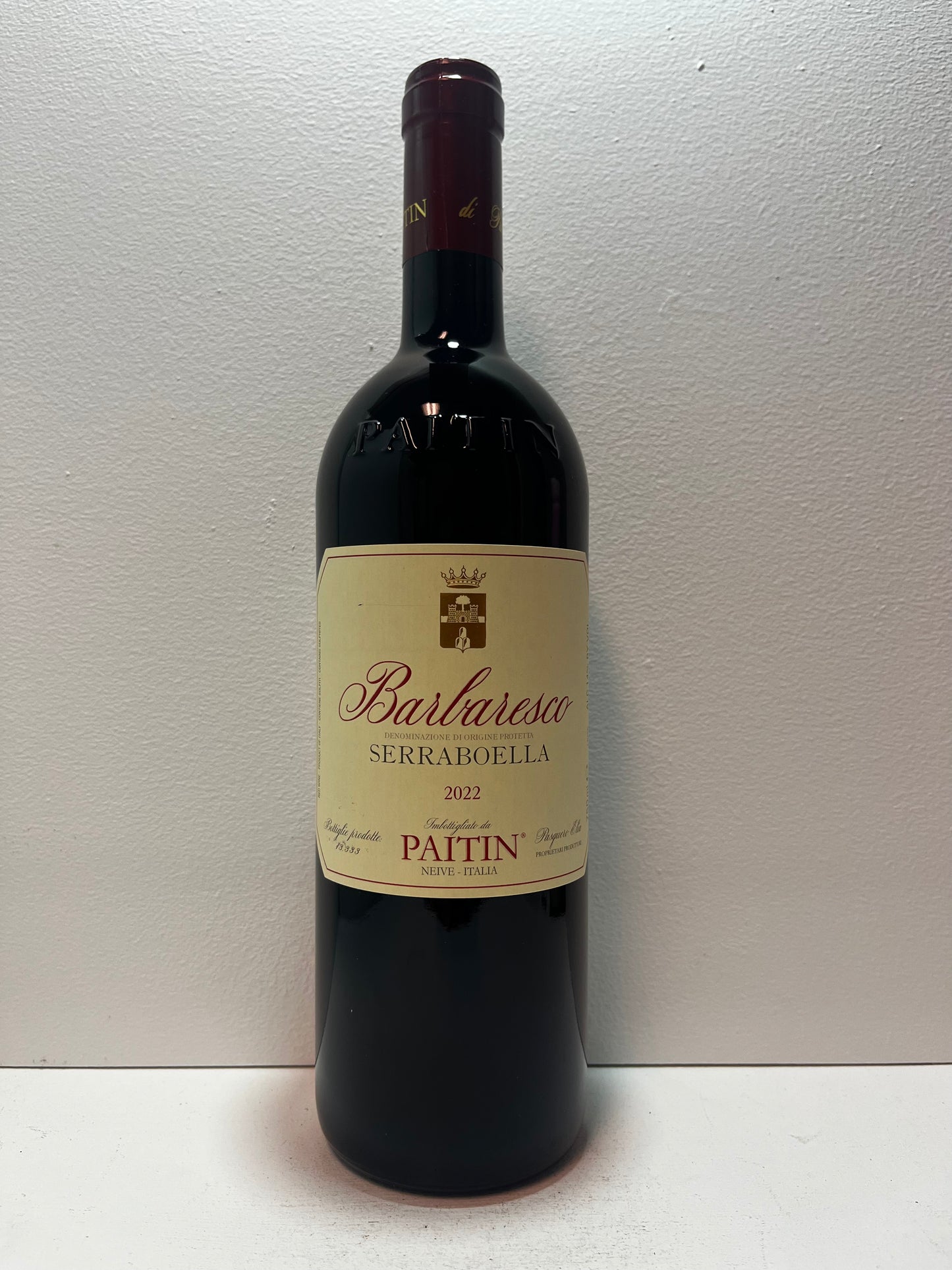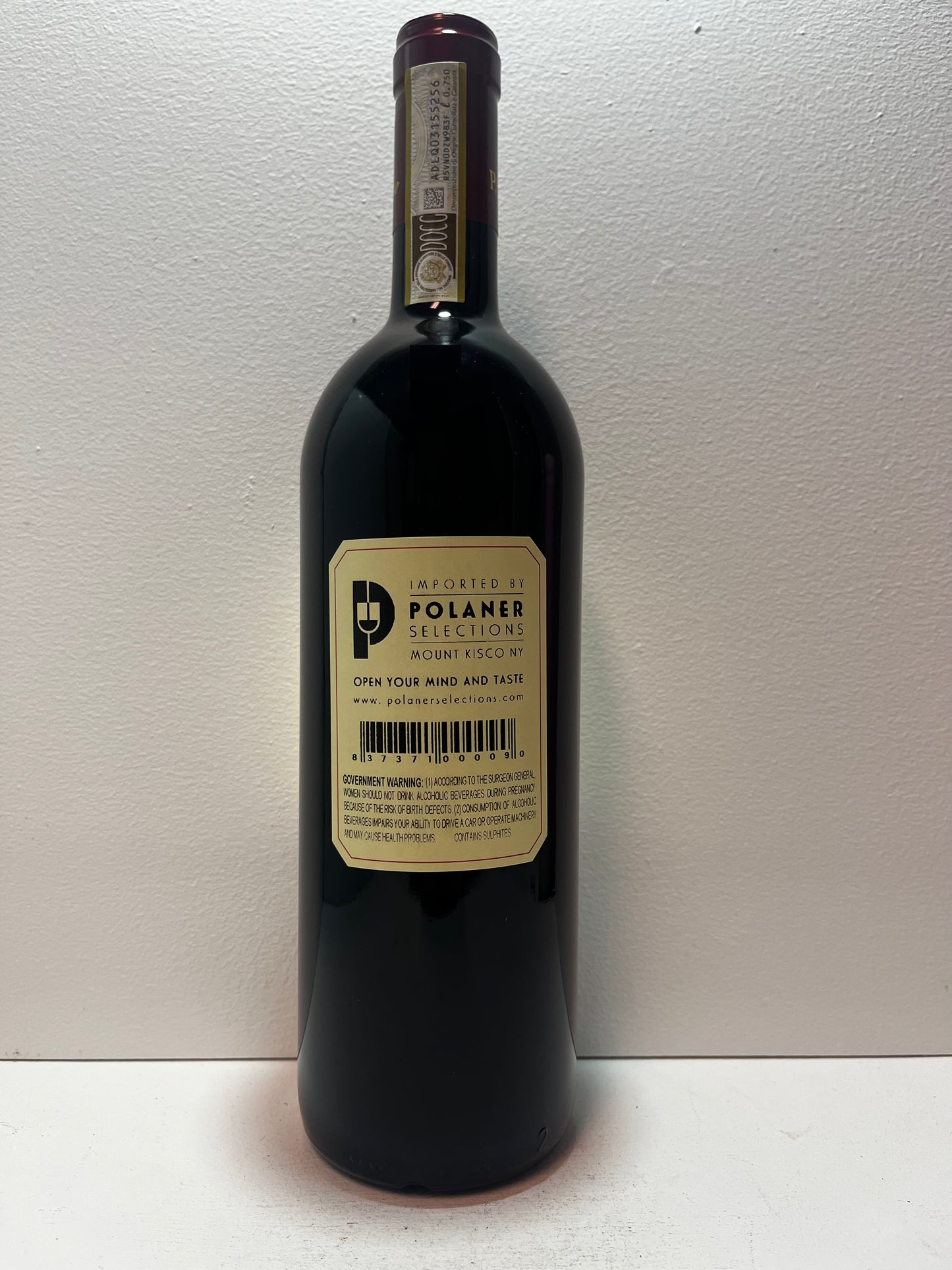Polaner
Paitin, Nebbiolo, Serraboela, Barbaresco, Piedmont, Italy 2022
Paitin, Nebbiolo, Serraboela, Barbaresco, Piedmont, Italy 2022
Couldn't load pickup availability
In 1796, Benedetto Elia purchased the Bricco di Neive- now known as the Serraboella Cru- in the commune of Neive in Barbaresco. Now, the winery is run by the 8th generation of winemakers.
Serraboella is the most famous Cru of the commune of Neive, in the southern part of the commune, gentle hillside mostly facing south.
In the vineyard, they practice organic viticulture with no use of herbicides or pesticides. Grapes are hand-harvested, fermented in stainless steel tanks and macerated for about 3 to 6 weeks, depending on the structure of the vintage. The wine is then aged in large Slavonian and Austrian oak for one and a half to two years before bottling.
Barbaresco
While Barolo is considered the King of Italian Wine, Barbaresco is considered the Queen. Equal in stature and quality as Barolo, but a little cooler in climatic conditions, producing [slightly] softer, feminine style of Nebbiolo. The Tanaro River separates it to the west from Barolo, which also offers a cooling effect.
Barbaresco has about 800 ha planted, or about a fourth of Barolo's plantings. Nebbiolo here ripens earlier with northern vineyard exposures prohibited and up to 550 meters of elevation. The top sites have average elevation of 200- 250 meters above sea level.
There are 4 communes of production, Neive, Barbaresco and Treiso, with just a small part the commune of Alba. Just like Barolo, Barbaresco also has its own MGAs, Menzione Geografica Aggiuntive, or Geographical Designations, formally introduced in 2007. In Barbaresco, the local term for Cru is Sorí, translating to a "high elevation, steep plot."
Neive produces wines that are fleshy and structured, Treiso produces lighter and fresher wines, while Barbaresco produces balanced wines, combining power with finesse. San Rocco Seno d'Elvio produces light and fresh wines that are better to be enjoyed young.
Soils here are very similar to Barolo with fossil derived soils of the Tortorian era and to lesser extend soils of the Serravalian era.
Share




